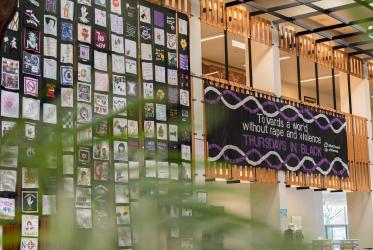*By Claus Grue
Nowadays, any cause can be effectively promoted in a blink of an eye, with a click on a button. At virtually no cost, messages travel fast around the globe through social media and other digital platforms. For good and bad, but mostly for good. Because without it, grassroots movements, such as the Arab Spring, which started in Tunisia in 2010 and ended up toppling several governments, would have had a much harder time rallying support and getting their message across to key audiences.
The cost of innovation
But with innovation usually comes a downside. Social media is just as potent in promoting messages of fear and hate, as it is in promoting hope and love. In recent years, hate speech has emerged as a serious issue, worrying guardians of free speech in democratic societies all over the world.
One such guardian is Pen International, a well-established advocate for human rights and freedom of speech. Through a network of more than one hundred centres worldwide, Pen makes sure that imprisoned writers and journalists are not forgotten and puts pressure on governments to release them. It runs a dissident blog where texts forbidden by totalitarian regimes are published. It also runs a programme against hate speech, a phenomenon occurring more and more often in social media.
About Pen’s work
In mid-April, 20 executive committee members and other participants in the World Association for Christian Communication (WACC) Europe assembly was welcomed to Pen International’s Stockholm office, where general secretary Anna Livion Ingvarsson gave a presentation of Pen’s work in Sweden.
“Our mission is to defend freedom of speech, a freedom which has no political, religious or national boundaries”, Ingvarsson explains.
The politically independent organization she leads is guided by – and widely recognized for – The Pen Charter, a set of principles approved in the aftermath of World War 2 at the 1948 Pen Congress in Copenhagen, the very same year that the World Council of Churches was founded.
In its charter, Pen affirms that “Members of PEN pledge themselves to do their utmost to dispel all hatreds and to champion the ideal of one humanity living in peace and equality in one world”.
Combating hate speech
A concrete example of this is Pen’s enduring work against hate speech, which it sees as an evil misuse of the rights of free expression.
“We believe in dialogue and education as efficient tools to counter hatred, extremism and falsehoods. Arranging seminars and discussions in schools is one very important part of our programme”, says Ingvarsson.
Her presentation left the communicators with plenty of inspiration and food for thought, as well as a strong sense of common interest and mission.
“Pen’s charter, and its approach to freedom of speech and human rights, has clear similarities with the way WACC tackles these issues. This has been a rewarding visit indeed, which fit very well into the theme of our assembly and which added new perspectives to our work”, concludes Stephen Brown, president of WACC Europe.
Links:
Learn more about Pen International
*Claus Grue is a communication consultant for the World Council of Churches









